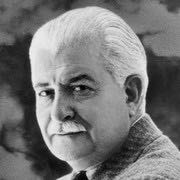John Philip Sousa (; November 6, 1854 – March 6, 1932) was an American composer and conductor of the late Romantic era known primarily for American military marches. He is known as "The March King" or the "American March King", to distinguish him from his British counterpart Kenneth J. Alford. Among his best-known marches are "The Stars and Stripes Forever" (National March of the United States of America), "Semper Fidelis" (official march of the United States Marine Corps), "The Liberty Bell", "The Thunderer", and "The Washington Post".
Sousa began his career playing violin and studying music theory and composition under John Esputa and George Felix Benkert. His father enlisted him in the United States Marine Band as an apprentice in 1868. He left the band in 1875, and over the next five years he performed as a violinist and learned to conduct. In 1880 he rejoined the Marine Band, and he served there for 12 years as director, after which he was hired to conduct a band organized by David Blakely, P.S. Gilmore's former agent. Blakely wanted to compete with Gilmore but Sousa never had a band of his own. From 1880 until his death, he focused exclusively on conducting and writing music. Sousa aided in the development of the sousaphone, a large brass instrument similar to the helicon and tuba.
Upon the outbreak of World War I, Sousa was awarded a wartime commission of lieutenant commander to lead the Naval Reserve Band in Illinois. He then returned to conduct the Sousa Band until his death in 1932. In the 1920s, he was promoted to the permanent rank of lieutenant commander in the naval reserve, but he never saw active service again.
Cite error: There are <ref group=lower-alpha> tags or {{efn}} templates on this page, but the references will not show without a {{reflist|group=lower-alpha}} template or {{notelist}} template (see the help page).











